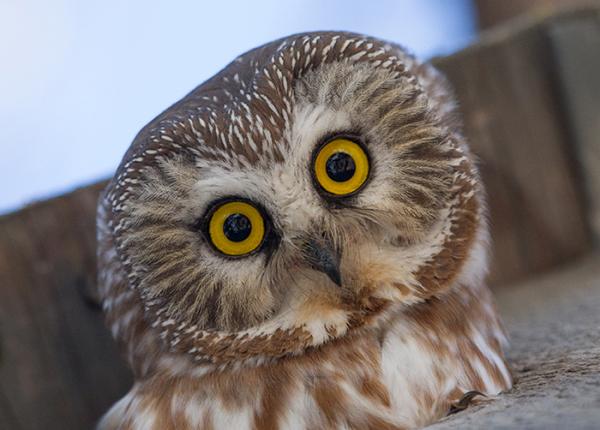From Donna Feledichuk
This image is only possible because I was using a 400mm f2.8 lens and due to countless hours of practice in photographing great gray owls. To get all the detail and not have blur in the wings shooting at lower shutter speeds at dusk is from tons of practice in the field. Opportunities for backlighting on great gray owls are not frequent. The weather needs to cooperate not always the case in the north and the owl needs to be in the right position. This image is about technical skill, fieldcraft and knowledge coming together in a single frame.


I could be wrong, but I believe that hippos are part of the horse clade, and it was actually older hooved ancestors of horses that evolved in to the cetaceans.
It’s worth a fact-check, perhaps.
It’s going to be rough for a while in the wake of humans causing most species to go extinct, but yeah… eventually new life will form. The planet still has ~500-600 million years for viable complex life to form until the main type of photosynthesis gets shut down by the sun getting hotter.
I don’t typically follow much on evolutionary biology, not that it doesn’t interest me, but that we seem to be learning so much it feels overwhelming but that we can do generic testing so readily.
I looked on Wikipedia quickly, and hippos are order Artiodactyl, the even toed ungulates. It says that a lot of people are trying to separate them from cetaceans, but then it also says this from a late 90s study:
I never researched the hippo to anywhere near what I do with the owls. I just started to feel they weren’t given their due and are treated like aquatic pandas, all cute and pudgy, when they are totally tough and brutal and deadly, and now I think they are the true king of beasts!
Oh wow, I was way off. TIL!
So yes indeedy, hippos are evidently the closest living relative to cetaceans, sharing a common ancestor that branched off a looong time ago:
Somehow I’d gotten it in to my head that hippos were a long-separated descendent of horses, I suppose because of their name, which literally means “water-horse” in old Greek. But horses are odd-toed ungulates, so it’s not even the same order of hooved animals. Whoops. :S
There’s a good argument for that. I believe their reputation in Africa is of a dangerous animal that one should normally take extreme care in approaching. On YT you can see some videos of hippos chasing boats when they become irritated, and they’re astonishingly fast, despite their bulk.
Compare them to a superficially similar animal such as rhinos-- when working at a zoo a long time ago, while doing some watering, I almost backed myself in to their open enclosure, and they had a chance to absolutely wreck me if they wanted. Yet they did nothing. In fact they’re generally gentle animals.
Btw, I think one key difference there is that bull hippos have harems of females, creating a territory that they must defend at times against other males that want to oust them. So they naturally need to have a hair trigger temper from what I understand.
I rank the hippo highly because it’s about equally as dangerous on land and water. There’s a number of animals that are scary in on or the other, but not many on both! They have almost the size and speed of a rhino (up to 30 mph / 48 kmh, surprisingly fast for being so large!) and giant teeth, a mouth that opens almost 180 degrees, and a bite force 3 times of a lion. They’re super territorial and generally in a bad mood. Most of that applied to the water too.
They sleep most of the day underwater, unconsciously coming up to breathe every 5 minutes or so. The problem occurs when someone is a little boat bumps into that nose, waking a very angry hippo!
Estimates say around 500 people a year are killed by hippos, while lions come in at only around half that.